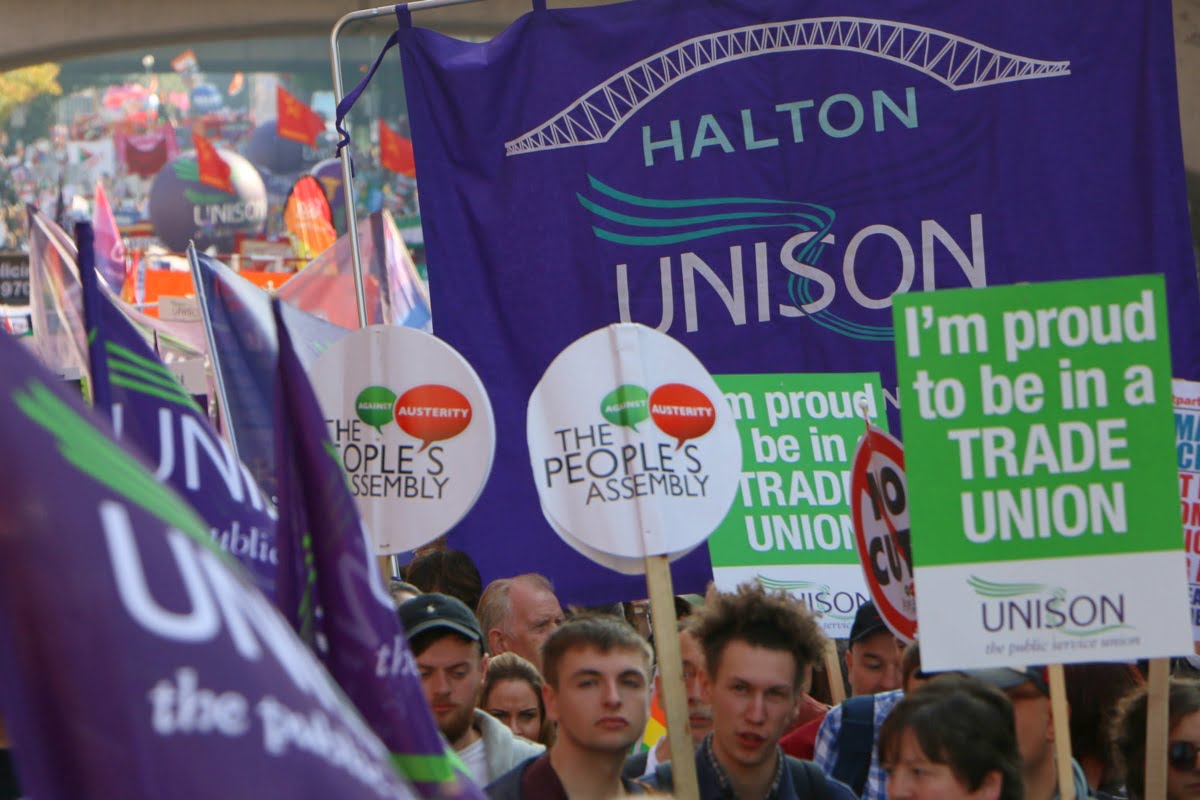There are stirrings inside Unison, Britain’s largest public sector union, as grassroots members demand a fighting stance.
This year’s Unison national delegate conference – held last week in Brighton – marked 25 years since Unison was founded as a merger of NUPE, NALGO and COHSE unions.
To note the occasion, the union’s NEC launched a ‘strategic review’, to be voted on at the conference. Seeing as it was rather vague and only intended to mark this anniversary, the leadership did not expect major controversy over it.
This initially appeared to be the case. The first few speakers on the strategic review (known as ‘Composite A’ in the conference agenda) raised no objections. But it was enough for a delegate from Manchester to say the words “we don’t trust you” to completely transform the debate. From that point on, speaker after speaker argued against Composite A. It was clear that a revolution on the conference floor was taking place.
Why did “we don’t trust you” resonate so strongly?
The current Unison leadership has been one of the most right-wing and passive trade union leaderships for years. Other unions have swung to the left, and thrown their weight into the struggle to support Corbyn as Labour leader. But Unison’s leadership – totally against the wishes and interests of the majority of its members – have openly undermined Corbyn, parroting the Blairites by saying he is ‘not effective’.
The union has missed major opportunities to fight austerity. As the major union in local government, they have passively allowed astonishing cuts to this department. And there is little or no plan to fight the fact that over the next two years, local government central funding will fall by another 50%.
The leadership frequently treats the rank and file and left-wingers in the union with open contempt, even going so far as to remove from office elected branch leaderships for attacking the leaders. In general, the leadership fears the branch leaderships – many of whom are left-wing and have their own base of support – and are always looking for any excuse to undermine them.
Increasing numbers of delegates referred to exactly this as they spoke against the motion. Although deliberately vague, the strategic review implied taking control of branch finances out of the branches and into the national centre, which could have disastrous effects on their ability to organise strike action, should the national leadership not support it.
In many cases, branches have already been left high and dry on their own when it comes to fighting battles locally. Taking branches’ money away would only serve to cement this position – and the control of the union bureaucracy – even further.
As if trying to prove the Manchester delegate right in their mistrust, when it came to the vote the NEC declared the motion passed when it was obvious that most had voted against it.
The hall erupted into several minutes of shouting, clamouring, and foot stamping to demand a card vote. This was continuously denied by the chair in the face of overwhelming opposition from the floor, until eventually other members of the NEC whispered in his ear and said a card vote was unavoidable.
After the votes were counted, it was revealed to the audience that the motion had in fact fallen by almost two-thirds! The exact votes were: for – 394,990; against – 609,044.
“Should’ve gone to Specsavers!” shouted one delegate to the chair from the conference floor, to much laughter.
How can Unison activists, then, trust their leadership to carry out a strategic review, when they can’t be trusted to honestly count such a blatant vote?
These events indicate that a shift is beginning to take place. Discontent is building up amongst grassroots union members, who want to see their anger against cuts reflected at the top.
The bureaucracy’s domination of Unison is coming to an end. And not a moment too soon. This leadership has been the biggest obstacle standing in the way of a sustained fightback against austerity. It must be replaced with a fighting leadership. The events at this year’s conference have surely hastened this.






